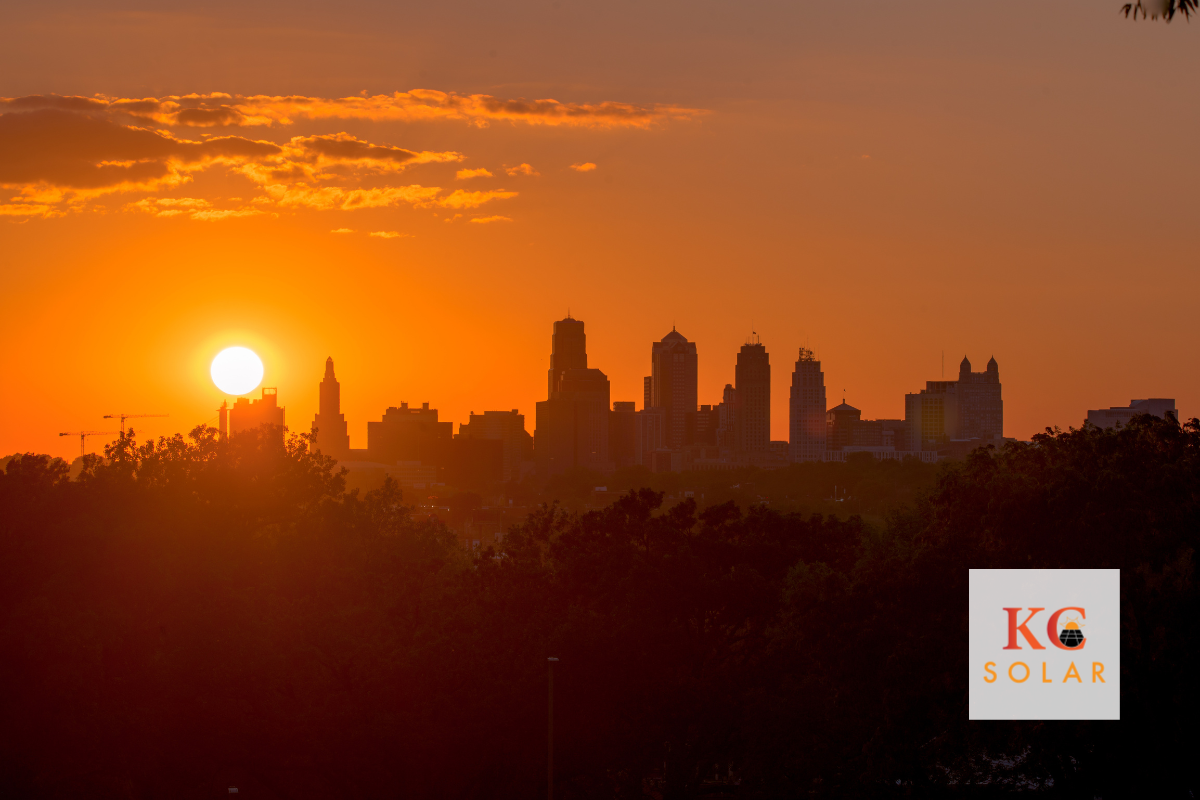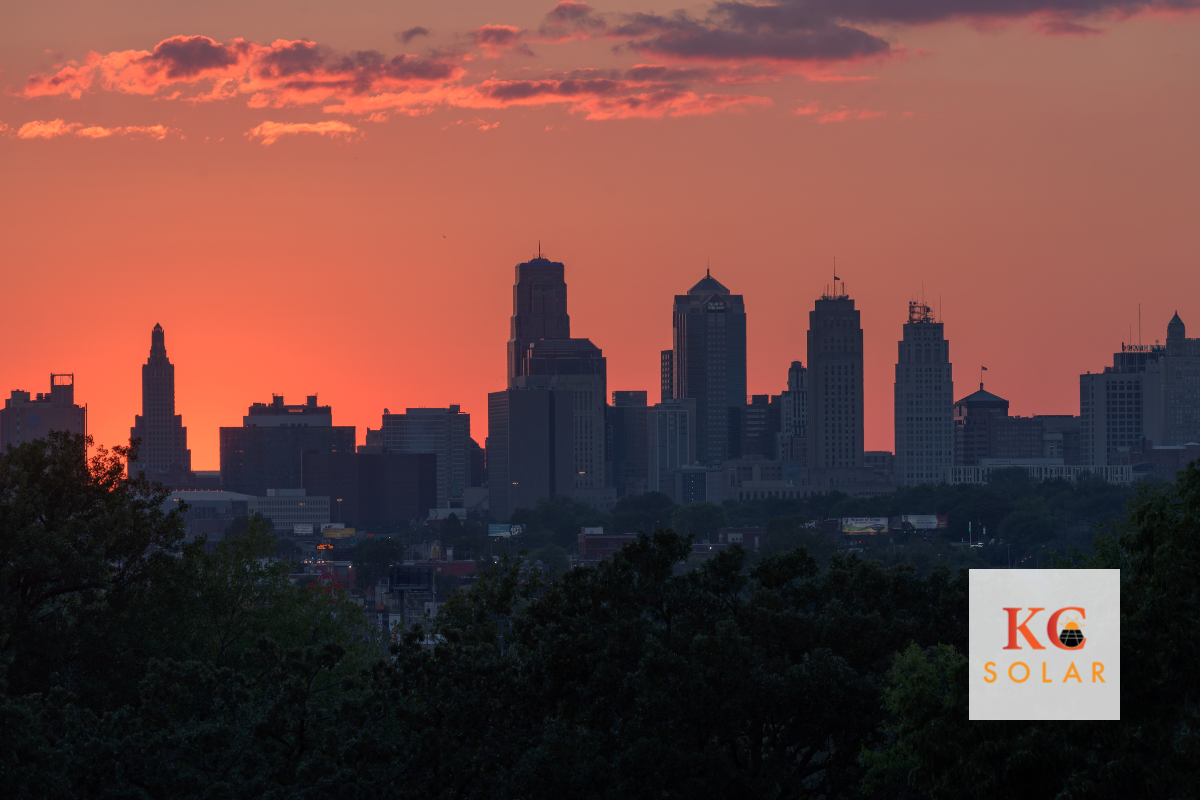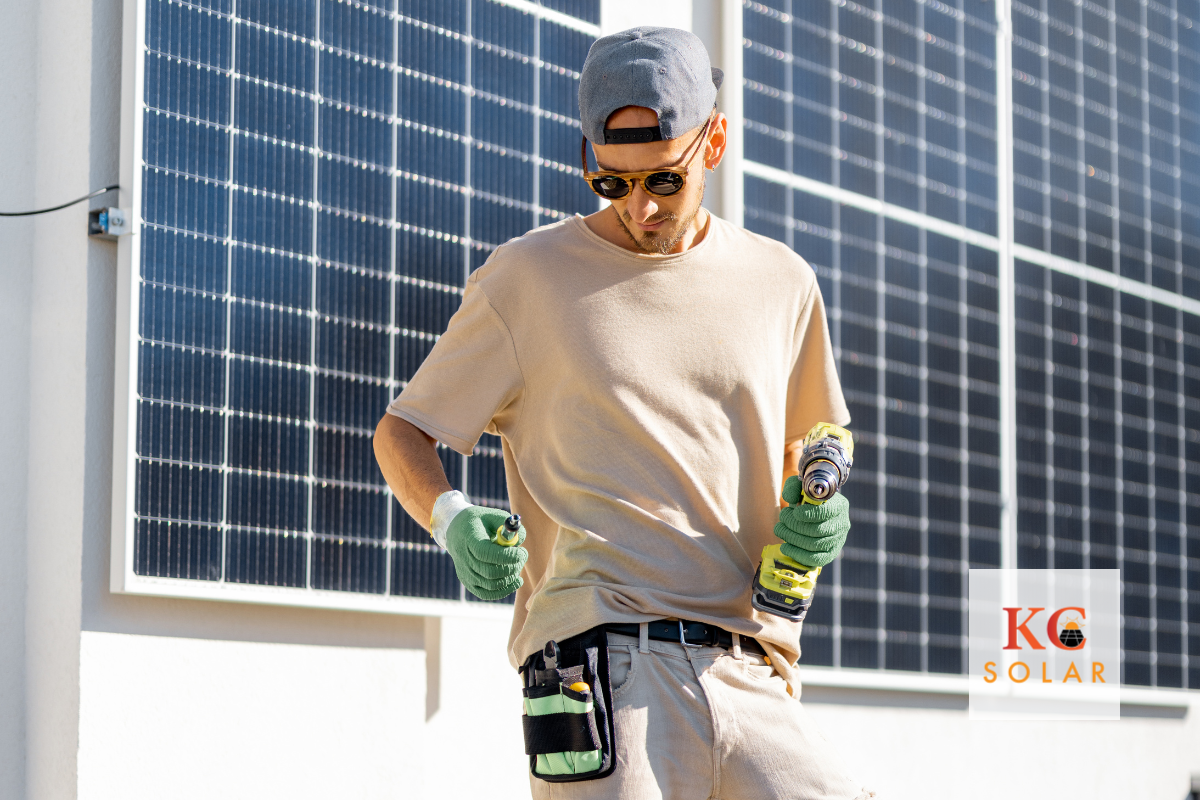If you live in Kansas City, you probably love it — just like we do. With the Chiefs winning two Super Bowls in the past few years, the World Cup coming in 2026, our new airport, and all the other exciting things coming down the pipeline, so many Kansas Citians have so much local pride. But did you know that Kansas City actually has a lot of characteristics that make it ideal for solar panels?
Here are just five reasons you should go solar in Kansas City.
1. Abundant Sunshine
During hot summers like this one, we really notice it — Kansas City gets a lot of sunshine throughout the year. On an annual basis, KC experiences an average of 2,814 hours of sunshine, and we have a higher number of sunny days compared to many other areas.
This abundance of sunlight ensures a consistent and reliable source of energy, maximizing the efficiency and output of solar panels. Additionally, the intensity of that sunlight plays a role in determining how efficient solar panels are.
Our geographic location in the center of the country also provides us with another favorable solar condition: high solar irradiance.
Solar irradiance refers to the amount of solar energy received per unit area. This data is important for designing and optimizing solar energy systems, as it helps determine the potential energy production and efficiency of solar panels in a specific location. All this to say… we’ve got that good solar irradiance here in KC!
2. Space to Expand
While Kansas City continues to grow with exciting new projects, like the 587 Project in Clay County, we all know that KC has plenty of space to expand. That’s one of the benefits of being in “flyover country,” right?
The amount of available land in the suburbs and surrounding rural areas provides opportunities for large-scale solar installations. It allows for the space needed for the installation of utility-scale solar farms, as well as solar systems on residential and commercial property.
And considering that KC is generally surrounded by fields — not forests — the open spaces mean that shade and other obstructions that can hinder solar panel performance are no longer a factor. Trees, buildings, and other structures that cast shadows on solar panels can significantly reduce their efficiency.
Having sufficient open space reduces the likelihood of shading, ensuring that solar panels receive maximum sunlight exposure throughout the day.
3. Financial Incentives
Local and federal incentives are a great way to reduce the cost of your solar panels. The Residential Clean Energy Credit, part of the Inflation Reduction Act, will subtract 30% of the cost of installing solar heating, electricity generation, and other solar products from federal taxes. The credit will be available to taxpayers for more than a decade, which means homeowners have plenty of time to consider their solar installation options.
From now until 2032, if you install solar equipment on your house, you are eligible to be compensated 30% of the total amount. Whether that’s $10,000 or $100,000, you will receive a nonrefundable credit to apply to your federal icon taxes.
From a local perspective, Missouri currently offers a rebate for solar systems becoming operational through the end of 2023. The rebate applies to new or expanded solar electric systems. It is limited to up to 25kW per system for residential solar customers.
In addition, a 25-cent per watt ($0.25/W) rebate is available for solar systems that became operational after June 30, 2019 and new systems that are installed through December 31, 2023.
4. Consistently Rising Energy Costs
Like many other regions, Kansas City has witnessed a steady increase in energy costs over the years. By installing solar panels, residents and businesses can generate their electricity and reduce their reliance on the grid.
According to data by the U.S. Energy Information Administration, the costs of electricity increased by 30% between 2010 and 2020.
Over the course of 25 years, a typical couple — no kids at home, maybe retired — can expect to spend about $58,000 on electricity, assuming that 30% increase every 10 years. Larger families may need to expect spending even more.
But what if you chose to install solar panels instead?
While solar panels do have an upfront cost, it typically only takes 8-10 years to see a total return on your investment. In other words, that’s how long it takes until you’ve recovered the initial money you spent on your solar panel system.
From that point on, you’re only putting the would-be costs of your electric bill back in your pocket.
5. Job Creation and Economic Growth
The installation of solar panels requires a skilled workforce — including technicians, electricians, engineers, and construction workers. As the demand for solar installations increases in Kansas City, more job opportunities are created in the solar industry.
And if you choose to work with a local solar installer in Kansas City for your solar project, you can help support a local business as well as your own community!
Just as your local solar company sees their work as an investment into your community — providing green, renewable energy and lower electric bills for our neighbors — choosing to hire local companies ensures that your money stays within your community, making the local economy stronger. That money can be reinvested into the community in so many different ways.
And many local solar companies source their materials from other local companies, which means you’re making an impact in more ways than one.
KC Solar is Your Local Kansas City Solar Team
If you are looking for the best solar company in Kansas City, look no further than KC Solar. They are your local Kansas City solar panel installation experts. Once you schedule a no-pressure site visit, our experts will help you understand what solar system specifications would be best for your home or business.
KC Solar is a local company made up of KC natives with KC pride — in our city, and in our work. Which means we’ll always give you the best of ourselves.
And be sure to download our Free Solar Panel Buying Guide for more information.






